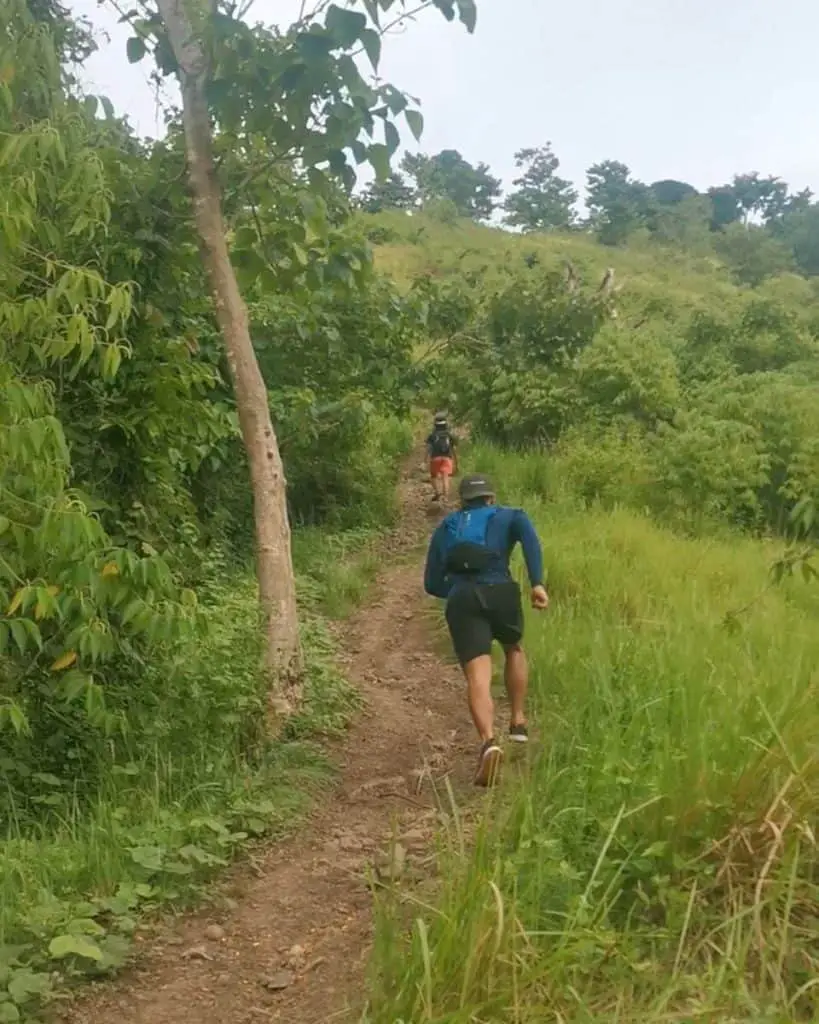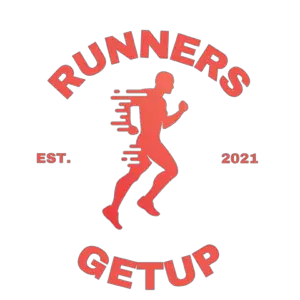This post contains affiliate links.
A friend invited you to run on the trail but you’re still hesitant because you’ve never tried trail running before. But is trail running so much harder than road running? I’ve been running on both surfaces for a long time now and here’s my personal experience:
Trail running isn’t necessarily harder than road running. It all depends on the surface that you run on. Technical and slippery trails will be significantly harder to run on but dry and buffed-out trails will be a lot easier on your body than running on the road.
Ahead, we will look at the different challenges of running on the road vs the trail so stick along because you don’t want to miss this.
Road Vs. Trail Running
Which is Harder on the Body?
There are a lot of beginners who are hesitant to run on trails believing it’s harder on your body. But that’s not always the case.
In my personal experience, I found that running on the road for the same distance is much harder in the body than running on a soft, buffed-out trail with the same degree of elevation (meaning, not uphill/downhill). I found myself needing more time to recover if I run on hard pavement because my body absorbs more impact than if I run the same miles on soft terrain.
However, technical trails and mountains with a high degree of elevation may challenge your muscles more. So if you haven’t trained your muscular endurance, you may feel a greater degree of muscle soreness than road running.
Which Requires More Focus?
Unlike running on the road where you can zone out to your favorite music, it’s a lot harder to do that on the trail, especially the technical ones.
(Related: Should I Run Without Music?)
Trails have all kinds of obstacles from branches, roots, rocks, and uneven surfaces that require more focus than running on flat pavement. For that reason, I’d say trail running is harder cognitively than road running.
But that’s not entirely a bad thing. Some runners prefer trail running for the very reason that it keeps you in touch with the present. That said, a lot of runners (including me) love trail running because it gets you in the flow.
Which Is More Prone to Injuries
Both types of running are prone to injury, however, the types of injuries differ.
Road running is prone to overuse injuries such as Achilles tendinitis, plantar fasciitis, and muscle imbalances while trail running is prone to accident-related injuries such as a sprain, fractures, and dislocation.
When running on the road, you move the same way over and over again putting stress on the same structures of your body over a very long duration. This causes those structures to inflame.
On the other hand, the terrain on trails is sometimes slippery, uneven, or filled with obstacles making slips, trips, and wrong landings fairly common. But there are ways you can reduce accidents on the trail. For example, wearing a trail running shoe will give you better stability and grip that could greatly decrease your risk of slipping.
The Salomon Speedcross 5 (link to Amazon) is great for beginners because it has an aggressive grip and protection that can support you as you learn skills and improve your balance.
Which is Harder to Learn as a Beginner?
Trail running is significantly harder to do as a beginner.
Unlike road running which is simply moving in the same way for a long time, there are many other physical attributes required for trail running such as balance, agility, and stability.
On top of that, you need to learn falling techniques, increase your reaction time as well as develop your decision-making skills.
That said, for those who want to run on trails, I highly recommend that you get in shape for trail running first before you run on technical trails.
Which Requires more Strength?
Considering that the trails are mostly located in hills or mountains, it’s safe to say that trail running requires more strength than road running. In addition, different muscle groups are used for running uphill and downhill.
Which Is More Challenging?
Both road running and trail running requires a tremendous amount of conditioning. Both make you breathe hard and both are equally challenging, but not in the same way.
Road running allows you to control your pace and challenge yourself in terms of your ability to maintain a pace for a longer time or if you can beat your previous time. Whereas your pace in trail running will be determined mostly by the terrain.

The challenge of trail running comes from reacting to the terrain as you go. Trail running is full of surprises. Sometimes the climb is too long that your thighs start to burn, on other times, you’re battling fatigue on the way down because your legs are starting to buckle.
To put it in simpler terms, it’s easy to challenge your cardiovascular endurance in road runs. On the other hand, your muscular endurance and your ability to adapt to new challenges are tested to a greater degree when you’re trail running.
How Much Slower Is Trail Running Than Road Running?
Depending on the running surface and elevation of your trail, you could be 10-30% slower on the trail than on the road. If you’re running an average of 9 to 10 mins per mile, don’t be surprised if your 1-3 mins slower per mile on the trail.
Other trails may require you to walk or even climb, so it’s perfectly normal to see a huge gap between your road and trail running time.
My advice is that you just run the trail however you can and not worry too much about the time. Your trail running time will vary on a lot of factors outside your control so even running the same trail twice can have huge gaps in time.
Does Trail Running Build Muscle?
Trail running builds muscle, particularly in the legs and calves. But that’s if you’re someone who never or rarely does resistance exercises.
At best, trail running can tone your legs and give your calves a little bit of size but the type of stress that your legs get through trail running is different from what is required for hypertrophy.
Does Trail Running Make You Faster on The Road?
Road running is a repetitive movement that involves the same muscles. Over time, you may reach plateau or muscle imbalances.
By adding trail running at least 1-2 times per week, you’re putting your body on a different type of challenge and involve different muscles that might’ve been neglected when you’re only running on the road. In addition, it improves your balance and stability which can eventually help your run faster on the road.
I also know a lot of runners who use trail running as a mental tool. They claimed that by running on the trail, they get this feeling of “If I can do this on this type of terrain, I can run much faster on the road”. I cannot say for sure whether it was the mental aspect or the different training stimuli that allowed them to run faster, but nevertheless, those who run on trails occasionally or as a part of their program were able to run faster on the road.
What Burns More Calories?
Trail running burns up to 10% more calories than road running because it puts more muscle groups to work and gives more variability for the heart.
The constant switching from running to walking, uphill to do downhill acts like interval training for the heart while the long-distance aspect of it all helps burn more calories.
That said, it’s safe to say that trail running also burns your energy faster so it’s best to pack the right goodies when you’re running on the trail.
The Verdict
Trail running provides a different type of challenge that, for some runners, they may find harder. But it doesn’t mean that trail running is significantly harder than road running.
Some find that the softer, more diverse trail is easier on the body because it has a lesser impact on the joints and distributes the workload on different muscle groups.
The difficulty of trail running is also determined by the type of trail. Muddy, single-track, and technical trails offer the greatest challenge while buffed-out trails are similar to road running but have a lesser impact on the joints.
With all that we’ve discussed, I highly recommend that you try trail running for yourself to determine whether or not this is for you.
